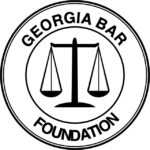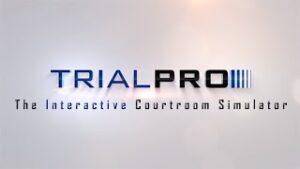Criminal Law Lesson Plans
Criminal Law (CrL) Course
The CrL course is the second course for a LS pathway.
To learn more about LAPSEN Courses and Standards – Click Here
Be sure to review the entire course standards first – Click Here
Industry Recognized Credential for this pathway (taken the third course – Civil Law) – Click Here
DO NOT SHARE ANY OF THIS CONTENT WITH STUDENTS!
Make a copy for your own use.
Once you have your own copy, you can modify assignments that can be shared with students.
This is not student curriculum – these are instructor unit lesson plans.
Lesson Plans
Resources are always being added. Check back from time to time.
ALP Review Guide should be a part of every unit for all three years of the course – Click Here for the Blueprint
Literacy – with emphasis on writing and grammar – must be a key part of all units of study! Learn ways to intentionally add literacy.
Please – submit YOUR lessons and resources. Email info@lapsen.org to learn how.
The lesson plans for the legal services pathway were created, in part, from a generous grant from the
Georgia Bar Foundations’ IOLTA Grant.

Section 1: Legal Careers
Unit Lesson Plan Time: 7 hours
Unit Lesson Plans – Click Here
This is currently an “edit” share link – please be careful not to edit!
Writer – M Keough
|
Objective 1: Describe the various careers available in the field of criminal law |
|
Objective 2: Demonstrate job interview skills and interview preparation steps |
Section 2: Legal Skills - Research and Writing
|
Objective 1: Research precedent that applies to criminal justice |
|
Objective 2: Present legal conclusions based on precedent and statutes |
|
Objective 3: Draft legal motions |
Section 3: Substantive Criminal Law
|
Objective 1: Describe important components necessary to proving a criminal charge |
|
Objective 2: Describe the elements required to prove common criminal charges and defenses |
|
Objective 3: Explain how crimes are classified |
|
Objective 4: Apply criminal law statutes to fact patterns to determine if a crime has been committed |
Section 4: Search and seizure of property
|
Objective 1: Explain major components of the 4th amendment |
|
Objective 2: Describe what a search warrant is and how it is used |
|
Objective 3: Describe important exceptions to 4th amendment search requirements |
|
Objective 4: Apply 4th amendment standards to search scenarios |
Section 5: Arrests and Stops
|
Objective 1: Describe standards of proof that apply to arrests and stops |
|
Objective 2: Describe how the 4th amendment applies to arrests and stops |
|
Objective 3: Apply 4th amendment standards to arrest scenarios |
Section 6: Confessions and Miranda Law
Unit Lesson Plan Time: 10 hours
Unit Lesson Plans – Click Here
Writer – pending submission
|
Objective 1: Explain important precedent governing interrogation law |
|
Objective 2: Apply Miranda standards to questioning and confession scenarios |
Section 7: Criminal Pre-Trial and Trials
Unit Lesson Plan Time: 15 hours
Unit Lesson Plans – Click Here
Writer – pending submission
|
Objective 1: Explain the function of major hearings in the criminal pretrial process |
|
Objective 2: Explain common pretrial motions |
|
Objective 3: Describe constitutional rights that apply in criminal trials |
Section 8: Criminal Law Offices
|
Objective 1: Demonstrate an understanding of how a law office operates |
|
Objective 2: Describe how income is generated in a law office and what costs are incurred at a law office |
Section 9: Criminal mock trials to enhance legal analysis, writing, and communication
|
Objective 1: Describe the mock trial process and legal documents contained in a mock trial case |
|
Objective 2: Analyze case materials to determine what information is helpful and harmful to proving a case |
|
Objective 3: Draft witness examination questions and answers using professional language and grammar |
|
Objective 4: Demonstrate substantive trial skills in an organized and professional manner |
|
Objective 5: Analyze and interpret legal documents and laws to develop conclusions in a case |
|
Objective 6: Convey relevant legal information in an organized and cohesive opening statement or closing argument |
|
Objective 7: Present a well organized trial presentation that utilizes professional language and focuses on satisfying all applicable legal standards |
Section 10: Criminal case sentencing and post-trial
|
Objective 1: Demonstrate an understanding of the sentence phase in a criminal case |
|
Objective 2: Describe plea agreements and how they are used in a criminal case |
|
Objective 3: Describe how a criminal appeal operates |
 Trial Pro – the Best Resource for Teaching Objections!
Trial Pro – the Best Resource for Teaching Objections!
Trial Pro works with LAPSEN LS Programs to offer their Trial Pro simulator and training materials at an amazingly affordable price.